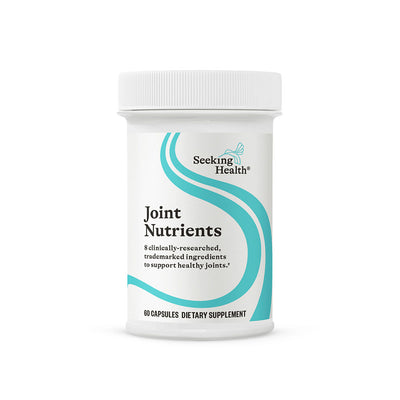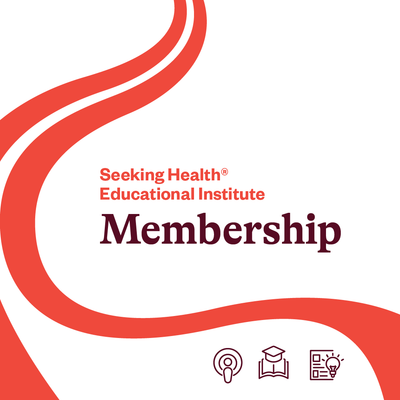In today’s digital era, where distractions abound at the click of a button, maintaining cognitive focus has emerged as a challenge for many. Now, more than ever, the quest to sharpen our minds and enhance concentration is not just an academic pursuit but a practical necessity for our daily lives.
The intersection of neuroscience and everyday routines offers us insights on how to refine our focus, yet sifting through this information can be daunting. We aim to bridge that gap by offering you 7 actionable, everyday strategies that you can start right now.

#1 Caffeinate smarter
Whether it's coffee or tea, a large portion of us use caffeine to get through the day. For many, it's the first thing to touch their lips when they wake up. Yet, to get the most benefit from your caffeine, you may want to wait until 9:30am-11am. Why? This is when your cortisol levels start to drop. Cortisol is naturally highest when you first wake up, around 7am or 8am, and gradually decreases throughout the day.( 1) Consuming caffeine when cortisol levels are high can interfere with your natural sleep-wake cycle, leading to feelings of tiredness once the effects of caffeine wear off. How quickly it wears off varies from person to person, but general recommendations state you should not consume caffeine within 6 hours of bedtime.( 2) Being more intentional with your intake can help prevent overconsumption and afternoon crashes.
#2 Set up barriers to distraction
A recent survey of over 500 employees found that they experienced one distraction every 31 minutes. The top contributors to these interruptions were replying to personal messages, checking emails, and surfing the web.( 3) Given that emails and the internet are a major part of the job for most, what can be done? The solution lies in strategic planning and leveraging technology to your advantage. For instance, web blockers can be used to limit access to distracting websites on a schedule of your choosing. Implementing designated times to review emails, and keeping your inbox closed outside these intervals, can also significantly minimize distractions. Of course, we can’t talk about distractions without mentioning cell phones. While turning off notifications is a step in the right direction, it may not be enough. A recent study found that just being able to see your phone was a distraction, even when silenced.( 4) If possible, turn your phone off and place it somewhere out of sight, like a drawer or even another room. By placing obstacles in the path of distraction, you will be less tempted to partake in them.
#3 Create a space you want to be in
Your environment has a huge impact on your productivity. If you enjoy being in your space, being productive in it feels easier. Are you one of the many now working remotely? You have plenty of opportunity to customize your space. Even in an office setting, certain modifications can be done to transform it into a more appealing and motivating sanctuary. Keep your space clean, organized, and free of clutter. Knowing where everything is streamlines your efforts and removes any friction from getting things done. Personalize this area with objects that not only resonate with your spirit but also drive your ambition; be it photographs of cherished moments, inspirational quotes that speak to your core, or both. Invest in nice pens, planners, keyboard pads, anything you use regularly. Incorporate plants in your space. Not only are they aesthetically appealing, studies suggest that plants can play a significant role in diminishing stress and anxiety, thereby enhancing mood, satisfaction, and cognitive functions.( 5) Lighting, too, holds great importance. The ideal lighting keeps you alert yet comfortable, without straining your eyes. Whenever possible, opt for natural light. Sunlight facilitates the production of vitamin D, positively affecting mood, attention spans, cognitive function, sleep quality, and overall consciousness.( 6) If sunlight isn’t readily available to you, be it from your geographical location or lack of windows, you can mimic it. Opt for cooler toned lighting overhead and a warmer toned lamp.( 7) You may even consider purchasing a sun or light therapy lamp. Remember, the environment where you invest your time and talents profoundly influences not only the quality of your work but of your mental health.
#4 Embrace ergonomics
Desk work is notorious for causing neck, back, shoulder, and wrist pain. Despite the seemingly low physical demands, being in the same position for hours on end can really take its toll. Showing up and being able to tune in is challenging when your body is in pain. Ergonomics studies the interaction between people and their work environments, aiming to enhance productivity and minimize injuries.The strategic arrangement of your workspace, like placing your keyboard and mouse within an arm's reach and the integration of wrist supports, can significantly alleviate discomfort. An adjustable chair that provides spinal support, coupled with the option of a standing desk, can transform your work experience.( 8) Opting to stand rather than sit offers a range of health benefits. It burns more calories, reduces back pain, increases focus and energy, and improves posture.( 9) Good posture alone can benefit your mood, energy levels, breathing, and reduce headaches.( 10)
#5 Break it down into smaller pieces
When faced with an overwhelming workload, finding the mental clarity and motivation to stay on task and be productive can feel impossible. Breaking projects down into smaller tasks can significantly boost your motivation and focus. Additionally, the practice of time-blocking—allocating specific periods of your day to certain tasks, and positioning the most challenging tasks during your peak performance hours—can dramatically enhance your cognitive function. This not only capitalizes on your natural rhythms of energy and concentration but also provides structured, achievable goals, making the path to productivity both clear and attainable.
#6 Listen to music
If you work in an environment with others, background noise can be a major distraction. Repeated interruptions throughout the day by conversations, buzzing phones, and office equipment can throw you off and leave you feeling frustrated. Though it may seem counterintuitive, music can serve as an effective tool to help you regain control of your environment and block out unwanted noise. Even those who work in a noise free space may benefit from music. Overall, music makes the task at hand more enjoyable and increases your endurance for it. Have you ever been in the middle of a workout or household chores, put on your favorite music, and found it became easier? Researchers have begun to reveal just why it has such an effect. When you listen to music, you stimulate almost every region of your brain including those related to motor control, memory, and reward. In this way, music is believed to increase both your alertness and motivation. However, the type of music seems to matter. Studies have found that for more cognitively demanding tasks, softer music without lyrics is beneficial while the opposite can be distracting.( 11) Another variable that plays into how you will respond to music is you. If you are the type of person who has a high need for external stimulation, music may add to your struggles.( 12) The best way to find out is to try! You will know fairly immediately if it works for you.
#7 Supplement to support your unique focus needs†
Understanding how your brain stays sharp and focused boils down to two key players: acetylcholine and dopamine. These neurotransmitters are essential for keeping you attentive, learning effectively, and managing various cognitive tasks. However, boosting one doesn’t automatically improve the function of the other, and could in fact exacerbate cognitive issues. This is because they offer different types of focus.( 13) If you think fast, talk fast, and experience nervousness during presentations, exams, and other cognitive tasks, you might resonate more with the calming effects of acetylcholine. If this sounds like you, Optimal Focus can be a game-changer. It’s a stimulant-free supplement designed to support learning, memory, and concentration by supporting healthy levels of acetylcholine.† On the flip side, if you find yourself lacking motivation and experiencing a low mood, you may want to consider the more uplifting power of dopamine. Dopamine Nutrients utilizes a multifaceted approach to support healthy levels of dopamine, which in turn supports healthy drive and motivation.†
Navigating the seas of today's distractions demands a mindful approach, tailoring your environments, habits, and routines to fortify cognitive resilience. It's about more than just productivity; it’s about cultivating a mind that’s ready to engage deeply with the world. Empowerment lies in understanding that amidst the clicks and notifications, your focus is not merely a resource but a sanctuary. A sanctuary you can nourish, enrich, and protect, ensuring that every moment spent is not just productive but meaningful.
References
- https://health.clevelandclinic.org/best-time-to-drink-coffee
- https://www.sleepfoundation.org/sleep-faqs/why-does-coffee-make-me-tired
- https://www.valuepenguin.com/news/employee-distractions-productivity
- https://hbr.org/2018/03/having-your-smartphone-nearby-takes-a-toll-on-your-thinking
- https://www.ncbi.nlm.nih.gov/pmc/articles/PMC9224521/
- https://www.ncbi.nlm.nih.gov/pmc/articles/PMC8957666/
- https://www.psychologytoday.com/us/blog/people-places-and-things/202106/how-lighting-choices-can-affect-your-mood
- https://www.mayoclinic.org/healthy-lifestyle/adult-health/in-depth/office-ergonomics/art-20046169
- https://www.juststand.org/the-facts/
- https://www.usa.edu/blog/how-to-improve-posture/#:~:text=Research%20shows%20that%20posture%20impacts%20productivity.%20If%20you%E2%80%99re,be%20a%20more%20productive%20member%20of%20the%20team
- https://www.researchgate.net/publication/350615835_Does_Music_Listening_Affect_Attention_A_Literature_Review
- https://psycnet.apa.org/record/2019-03876-001
- https://my.clevelandclinic.org/health/articles/22513-neurotransmitters
†This statement has not been evaluated by the Food and Drug Administration. This product is not intended to diagnose, treat, cure, or prevent any disease.












